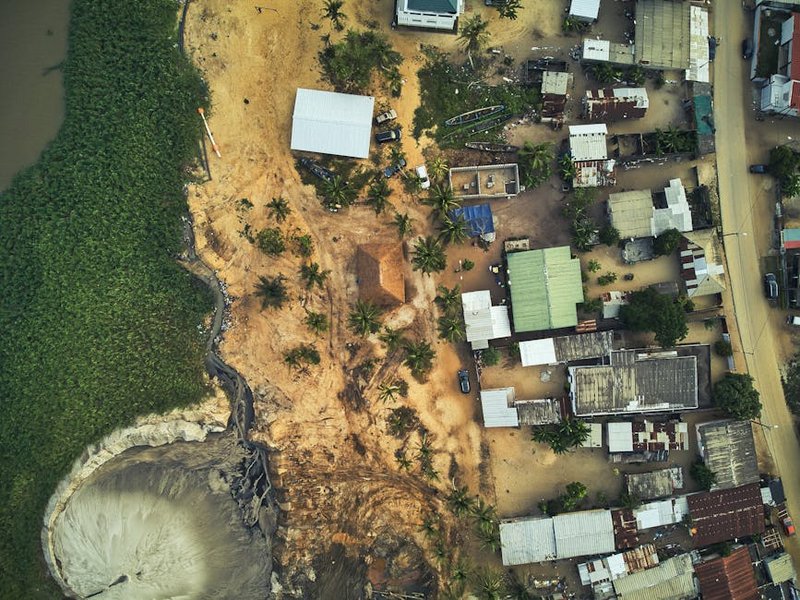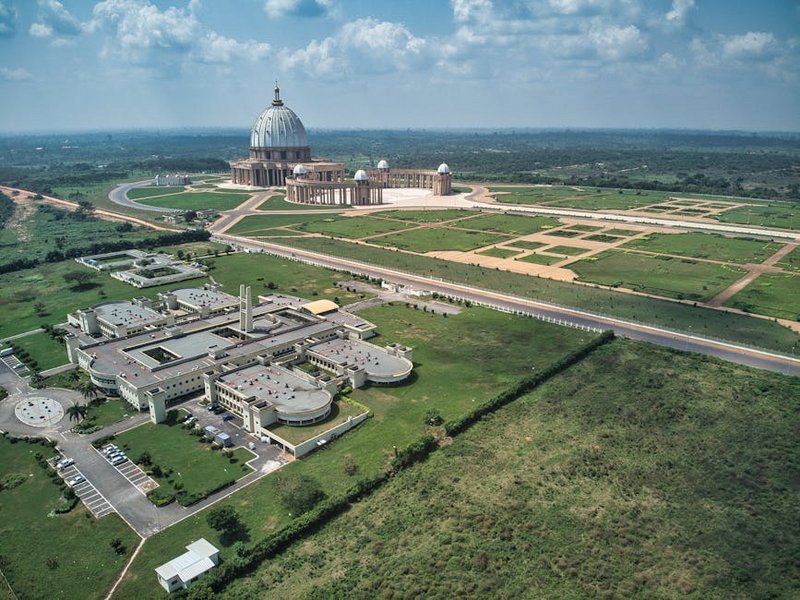Ivory Coast Grand Bassam Colonial Town Exploration
Grand Bassam Colonial Town offers a captivating glimpse into Ivory Coast’s French colonial past through well-preserved 19th-century architecture and UNESCO-recognized historic districts. Visitors experience a unique blend of cultural heritage sites, vibrant local markets, and beautiful Atlantic beaches within easy reach from Abidjan. This guide covers essential travel planning, must-see attractions, practical logistics, and authentic cultural experiences for your West African adventure.
Grand Bassam’s Colonial Heritage Essential Information
Grand Bassam served as the first capital of French Ivory Coast from 1893 to 1900, establishing its historical significance in West African colonial history. The town features distinctive colonial-era buildings with wrought-iron balconies, shuttered windows, and faded pastel facades that reflect its prosperous past. These architectural treasures span both the Ancien Bassam and Nouveau Bassam districts divided by the Ébrié Lagoon.
UNESCO designated Grand Bassam as a World Heritage site in 2012, recognizing its outstanding universal value as a colonial planned city. The designation helps preserve approximately 150 historic buildings while supporting sustainable tourism development in the region. This protection ensures future generations can appreciate the town’s unique architectural and cultural legacy.
Historical Background and Significance
Understanding Grand Bassam’s history enriches your visit to this important cultural site.
- French colonists established Grand Bassam as their first settlement in 1893, using it as the colonial capital until 1900 when yellow fever outbreaks prompted relocation.
- The town witnessed significant events including early resistance to French rule and played crucial roles in the ivory and timber trades that shaped Ivory Coast’s economy.
- Grand Bassam’s architecture reflects typical colonial urban planning with administrative buildings, commercial structures, and residential quarters arranged in distinct sectors.
- Budget travelers spend $30-50 daily using shared taxis, street food, and basic guesthouses like Chez Maman for $15-25 nightly, focusing on free attractions including beach access and self-guided historic district walks.
- Mid-range visitors allocate $60-100 daily for private taxis, restaurant meals, and hotels such as Hotel Etoile du Sud at $40-70 nightly, adding guided tours and museum entries to their itinerary.
- Luxury experiences cost $120-200+ daily featuring beachfront resorts like La Maison d’Ebène from $100 nightly, private guides, fine dining at Le Chalet, and customized cultural performances.
- Office Ivoirien du Tourisme
- UNESCO World Heritage Centre
UNESCO World Heritage Status Details
Grand Bassam earned UNESCO recognition for representing a late 19th-century colonial planning model adapted to specific geographic conditions. The designation covers 115 hectares including the historic Ancien Bassam quarter with its grid street pattern and colonial buildings. Preservation efforts focus on maintaining architectural authenticity while accommodating modern uses and tourism development.
Visitors should respect heritage conservation guidelines by not touching fragile structures and following designated pathways. The UNESCO status has increased international visibility while providing funding for ongoing restoration projects throughout the historic district. These efforts balance preservation with community needs in this living heritage site.
Location and Geographic Context
Grand Bassam occupies a coastal position approximately 25 miles east of Abidjan, Ivory Coast’s economic capital and largest city. The town stretches between the Atlantic Ocean and Ébrié Lagoon, creating a narrow peninsula location that influenced its historical development. This strategic positioning made it an ideal trading post during the colonial era.
Today, Grand Bassam functions as both a historic preservation area and popular beach destination for Abidjan residents and international visitors. The town’s division by the lagoon creates two distinct areas: the historic French colonial quarter and the newer commercial district. This geographic separation helps maintain the historic area’s atmospheric charm.
Ivory Coast Grand Bassam Colonial Town – Planning Your Trip
Your Ivory Coast Grand Bassam Colonial Town visit requires careful timing between November and March when dry season conditions provide optimal weather for exploration. Budget approximately $50-80 daily for comfortable mid-range travel including accommodation, meals, and local transportation. Prepare necessary documentation including passports valid six months beyond your stay and check visa requirements based on your nationality.
Book accommodations several weeks in advance during peak season from December to February when European visitors escape winter. Consider splitting your stay between Grand Bassam and Abidjan to experience both historic charm and urban convenience during your Ivory Coast itinerary. Pack lightweight cotton clothing, sturdy walking shoes, sun protection, and rain gear for unexpected tropical showers.
Respect local customs by dressing modestly when visiting religious sites and government buildings in the colonial quarter. Learn basic French phrases since English proficiency remains limited outside major hotels and tourist establishments. Carry sufficient CFA francs since credit card acceptance proves unreliable in smaller establishments.

Alt: “grand-bassam-colonial-architecture-historic-buildings-facade”
Best Time to Visit Grand Bassam
Visit Grand Bassam between November and March during the dry season when temperatures range from 75°F to 90°F (24°C to 32°C) with minimal rainfall. These months offer ideal conditions for exploring outdoor historic sites and enjoying beach activities without excessive humidity. December through February constitutes peak season with higher accommodation prices but guaranteed sunny weather.
Shoulder seasons in October and April provide good value with moderate crowds and occasional brief showers. Avoid the rainy season from May to September when heavy downpours can limit outdoor activities and high humidity makes extensive walking uncomfortable. The harmattan winds from December to February sometimes bring dusty conditions that reduce visibility but lower temperatures slightly.
Budget Planning and Costs
Manage your expenses with this tiered budget approach for Grand Bassam.
Essential Preparation Checklist
Complete visa applications through Ivory Coast embassies or the official e-visa portal at least three weeks before departure for most nationalities. Verify vaccination requirements including yellow fever certification which remains mandatory for entry to Ivory Coast. Purchase comprehensive travel insurance covering medical evacuation given limited healthcare facilities in Grand Bassam.
Pack quick-dry clothing, wide-brimmed hats, and high-SPF sunscreen for protection against intense equatorial sun exposure. Include mosquito repellent containing DEET and consider antimalarial prophylaxis recommended for Ivory Coast travel. Download offline maps and translation apps since internet connectivity can be unreliable outside major hotels in the historic district.
Top Attractions and Activities in Grand Bassam
Grand Bassam’s historic district contains numerous well-preserved colonial buildings including the former French governor’s palace, customs house, and numerous trading company headquarters. These architectural gems line shaded streets where visitors can imagine the town’s prosperous past as a major colonial administrative center. Many structures feature interpretive plaques explaining their historical significance and original functions.
The National Costume Museum showcases traditional Ivorian textiles and ceremonial dress within an beautifully restored colonial building near the main square. This cultural institution provides valuable context about Ivory Coast’s diverse ethnic groups and their sartorial traditions. Visitors gain appreciation for how clothing reflects social status, age, and occasion in Ivorian societies.
Grand Bassam’s beaches offer relaxation after historic site exploration with palm-fringed shores and Atlantic surf. The main public beach features local vendors selling refreshments while more secluded areas provide peaceful swimming conditions. Always exercise caution with ocean currents and follow local advice about swimming safety during your visit.
Must-See Colonial Buildings
The former French Governor’s Palace stands as Grand Bassam’s most iconic colonial structure with its grand staircase, wraparound verandas, and commanding position overlooking the lagoon. Though currently closed for restoration, the exterior remains impressive and photogenic from the surrounding gardens. This building symbolized French colonial authority during Ivory Coast’s early administration period.
Visit the Old Customs House which operated as the center of commercial activity during the colonial trade era featuring distinctive yellow exterior and arched windows. Nearby, the Cathedral of St. John the Baptist represents early 20th-century missionary architecture with its simple white facade and wooden interior. These structures collectively illustrate the administrative, commercial, and religious dimensions of colonial life.
Beach and Water Activities
Grand Bassam’s coastline provides various beach experiences from the lively main shore with local food stalls to quieter stretches near fishing villages. Swimming proves enjoyable during high tide while low tide reveals extensive sandbars ideal for beachcombing. Local operators offer boat tours to nearby islands and lagoon excursions for different perspectives of the coastal landscape.
Surfing conditions attract beginners with consistent small waves particularly during the rainy season from June to September. Several local surf schools provide equipment rental and instruction for those new to the sport. Always verify current conditions with locals since Atlantic currents can be strong and change rapidly along this section of coast.
Cultural and Museum Visits
The National Costume Museum occupies a beautifully restored colonial building and displays traditional garments from across Ivory Coast’s ethnic groups. Exhibits include ceremonial regalia, everyday wear, and accessories that illustrate cultural diversity and artistic expression. Knowledgeable guides enhance the experience with explanations of textile techniques and symbolic meanings.
The Centre Artisanal de Grand-Bassam features local artisans practicing traditional crafts including wood carving, basket weaving, and batik fabric production. Visitors observe creation processes and purchase authentic souvenirs directly from makers. This cooperative supports preservation of traditional skills while providing economic opportunities for local craftspeople.
Practical Travel Information for Grand Bassam
Reach Grand Bassam via Felix Houphouet-Boigny International Airport in Abidjan (ABJ), then take a 45-minute taxi ride costing $20-30 or shared minibus for approximately $3. Several international airlines service Abidjan from European hubs including Paris, Brussels, and Istanbul with connecting flights from North America. Within Grand Bassam, walking serves as the primary transportation method in the compact historic district.
Accommodation options range from basic guesthouses in Nouveau Bassam to charming colonial-era hotels in the historic quarter. Book well in advance for preferred properties especially during December and January when European visitors flock to escape winter. Consider splitting your stay between Grand Bassam and Abidjan to experience both historic atmosphere and urban convenience.
| Accommodation Type | Features and Locations | Price Range (USD) |
|---|---|---|
| Budget Guesthouses | Basic rooms in Nouveau Bassam, shared bathrooms, fan cooling, local restaurants nearby | $15-30 nightly |
| Mid-Range Hotels | Private bathrooms, air conditioning, swimming pools, located between historic and modern districts | $40-80 nightly |
| Boutique Heritage Properties | Restored colonial buildings in Ancien Bassam, character features, breakfast included, guided tours | $90-150 nightly |
| Beachfront Resorts | Direct beach access, restaurants, spa services, water sports facilities, larger complexes | $120-250 nightly |


